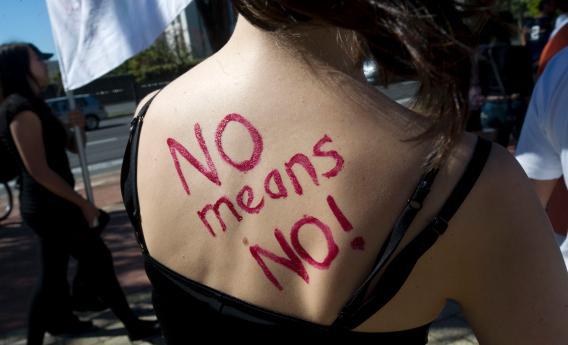My freshman year, I filed a complaint with Yale’s Sexual Harassment Grievance Board. After recounting the details of an attempted assault and the subsequent harassment to the perhaps well-meaning but ultimately clueless professors, I was sent out the door with the promise that the committee would ask my assailant to leave me alone (a formal hearing would be too emotionally draining, I was told). The Grievance Board representatives advised me to keep quiet; even if I only told my closest friends, they warned, word might get out.
The “advice” was offered as though it were my own reputation for which the school was so concerned—a problematic idea in itself—but it was clearly Yale’s shining name that was truly at risk. In the past 15 months, since 15 classmates and I filed a Title IX complaint against Yale with the U.S. Department of Education, the school has started shaping up. A streamlined university-wide committee, run by sensitive and well-trained faculty, has replaced the old Grievance Board, and the dean’s office has launched an aggressive education campaign. However, Yale hasn’t managed to shake its prioritization of its brand over its students’ safety.
On Friday, the student body (including recent graduates like myself) received a press release from President Richard Levin about the school’s settlement with the Office for Civil Rights, which conducted the long and thorough investigation. As expected, Levin highlighted the good news, that OCR had reported “no findings of non-compliance,” and that Yale had “voluntarily” agreed to take additional measures to strengthen its anti-violence programming. His selective quoting of the report had the desired effect, giving newspapers the impression that Yale had been cleared. “Yale Found in Compliance with Title IX,” one student paper announced.
But that is not exactly the case. OCR didn’t find Yale noncompliant, nor did it find it compliant. The truth is that Yale is on something like probation right now. As most schools under investigation do, Yale signed an agreement (available through the Department of Education website) to continue its new policies, take additional steps against sexual violence, and submit to continued monitoring. For at least the next two years, but likely more, both OCR and a new standing committee of complainants, students, and alumni will have a close eye on Yale, and a later finding of noncompliance could result in fines or referral to the Department of Justice.
Yale agreed to these terms, as many schools do, explicitly to avoid being found noncompliant, but it’s certainly not a declaration of innocence. In fact, the OCR’s letter presenting the settlement clearly indicates that Yale was well outside the bounds of the law at the time the complaint was filed; among other disturbing findings, OCR reported that students were confused by the school’s grievance procedures and found the disciplinary committee “very unfriendly to victims of sexual misconduct.” Russlynn Ali, assistant secretary for civil rights at the Department of Education, said the OCR’s recommendations were based on “strong concerns and tragic, tragic stories.”
That’s not an exoneration, and by leaving us with that wrong impression Yale is only undermining its own efforts to make the New Haven campus safe for women.
